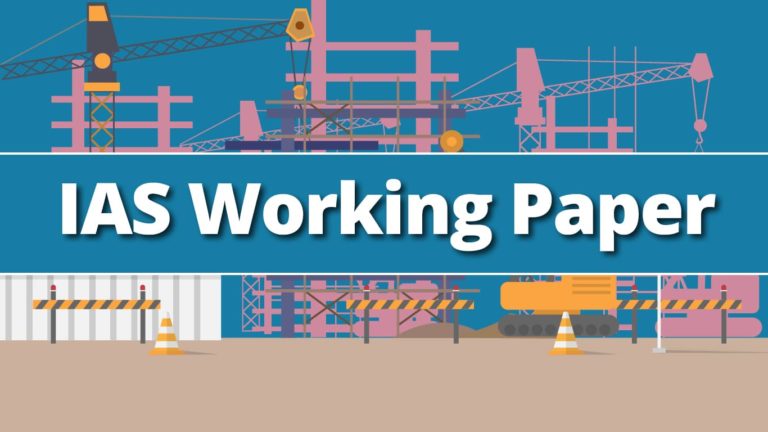The Institute of Asian Studies at Universiti Brunei Darussalam is pleased to announce the publication of IAS Working Paper No 49: The Construction of Southeast Asia as an Academic Field of Study: Personages, Programmes and Problems by Victor T. King. Please see below for details.
Abstract: This paper explores critically and historically some of the popular academic views or ‘myths’ concerning the development of the study of Southeast Asia through the lens of the contributions of particular scholars and institutions. Within the broad field of Southeast Asian Studies, the focus will be on the disciplines of geography, history and ethnology, and major scholars who contributed to the early study of the region. There are certain views concerning the development of scholarship on Southeast Asia which continue to surface and have acquired or are in the process of acquiring ‘mythical’ status. Among the most enduring is the claim that the region is a post-Second World War construction primarily arising from Western politico-strategic and economic preoccupations. More specifically, it is said that Southeast Asian Studies has been subject to the American domination of this field of scholarship, located in particular programmes of study in such institutions as Cornell, Yale, and California, Berkeley, and, within those institutions, focused on particular scholars who have exerted considerable influence on the directions which research has taken. Another is that, based on the model or template of Southeast Asian Studies (and other area studies projects) developed primarily in the USA, it has distinctive characteristics as a scholarly enterprise in that it is multidisciplinary, it requires command of the vernacular, and assigns special importance to what has been termed ‘groundedness’ and historical, geographical and cultural contextualization; in other words, a Southeast Asian Studies approach as distinct from disciplinary-based studies addresses local concerns, interests, perspectives, and priorities, and it does so through in-depth, on-the-ground, engaged scholarship. Finally, and, more recently, views have emerged that express the conviction that a truly Southeast Asian Studies project can only be achieved if it is based on a set of locally-generated concepts, methods, and approaches. In other words, Western ethnocentrism and intellectual hegemony encourage ‘a captive mind’ in local scholarship which must be replaced by a genuinely local research endeavour presenting alternative views of the region, its past, present and future.
Author: Victor T. King is Professor of Borneo Studies at Universiti Brunei Darussalam and Emeritus Professor in the School of Languages, Cultures, and Societies at the University of Leeds. He was formerly Executive Director of the White Rose East Asia Centre, Universities of Leeds and Sheffield (2006-2012). He has long-standing interests in the sociology and anthropology of Southeast Asia, ranging over such diverse fields as social and cultural change, development, tourism and heritage, ethnicity and identity, multidisciplinary area studies, and museum and photographic studies. Among his recent publications are an edited book, UNESCO in Southeast Asia: World Heritage Sites in Comparative Perspective (2016, NIAS Press, Copenhagen), and co-edited books on The Historical Construction of Southeast Asian Studies (2013, ISEAS Press, Singapore), Rethinking Asian Tourism: Culture, Encounters and Local Response (2014, Cambridge Scholars Publishing, Newcastle), Tourism and Monarchy in Southeast Asia (2016, Cambridge Scholars Publishing, Newcastle), Human Insecurities in Southeast Asia (2016, Springer, Singapore), Borneo Studies in History, Society and Culture (2017, Springer, Singapore), Tourism and Ethnodevelopment: Inclusion, Empowerment and Self-determination (2018, Routledge, London and New York) and a four-volume reader, Tourism in East and Southeast Asia (2018, Routledge, London and New York). His recently published papers have appeared in the journals Sojourn: Journal of Social Issues in Southeast Asia; South East Asia Research, Bijdragen tot de Taal-, Land- en Volkenkunde, Current Issues in Tourism, Journal of Human Security Studies, Suvannabhumi: Multi-disciplinary Journal of Southeast Asian Studies, International Journal of Asia Pacific Studies, International Journal of Humanities and Social Science Research, Asian Journal of Tourism Research, and Pertanika: Journal of the Social Sciences and Humanities. His co-edited book Tourism in South-East Asia (1993, Routledge, London and New York) has been re-issued with a new Preface (2019).
To see more IAS Working Papers, please visit the IAS Working Papers web page.




